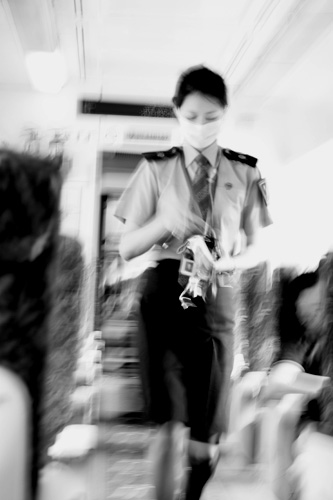| Big Brother |
<cont' from p 1 >
Newspapers feature the minority Uegar factory workers in the north rioting against their Han Chinese employers. “Terrorists,” one of our Chinese friends calls them. That word gives its speaker so much power. We Americans casually throw it around without understanding that it often applies to both sides in an armed conflict. Yet, the use of the word is reserved for the winning side. I realize how fast things could change for us in Tibet.
I sit down at a hotel computer to write on Facebook. I get a screen with a paw print on it. Facebook is a banned website. I begin to wonder if someone is watching the content of my e-mails with words like “Tibet riots” and “pro-democracy."
A friend who did business here said that the Chinese have a different definition of privacy. Back in Hong Kong, we were advised not to say, write or photograph anything we wouldn’t want officials to know about. Leaving camera cards and journals in hotel rooms is risky. Surveillance cameras wouldn’t be out of the question.
My friend Alan, a climate researcher, had his hotel room broken into and his laptop searched. Despite the fact that he was merely an academic and not an American spy, he was told to leave
|
|
|

.
Some of my team mates think I am paranoid. They still can’t quite believe in all of this. Matt, a sound artist from Belfast says this supposed surveillance is a colossal waste of time and effort. “What would we do that could possibly interest them? < next >
|